In 2010, it was reported that 12 million people used opiates due to addiction. Abuse of prescription painkillers such as hydrocodone, oxycodone, and hydromorphone, and others topped the list of the most abused substances. Most addicts started out taking prescription drugs to cope with pain and quickly became hooked on the highly addictive drugs. Many continue doctor shopping and buying illegal street drugs to maintain their habit, but others move on to dangerous illegal drugs such as heroin to cope with their addiction. Sadly, the fear of dealing with the horrific withdrawals are often what fuels the ongoing use of opiates for many users. In this article, we will explore opiate withdrawal supplements that can make kicking the habit easier.
Table of Contents
Opiate Withdrawal
Withdrawal from opiates is extremely uncomfortable. The symptoms of detoxification make stopping the habit almost impossible for some users. Although rarely life-threatening. The withdrawal effects have been known to cause serious health complications. Also, remember that the severity of withdrawal symptoms is based largely on your level of dependence. Without a doubt, going through withdrawals provides significant challenges. However, withdrawal is a vital step towards living an addiction-free life.
Individuals who fail to kick the habit often face a grim future with Healthgrades reporting that 130 people die each day from opioid overdose in the U.S. Many opt to seek an inpatient treatment facility, but for others the high cost is impossible and the waitlist for inexpensive or government-run treatment facilities often spans months or years. In such a situation, some addicts opt to cope with the withdrawal symptoms at home.
Symptoms of opiate withdrawal supplements include:
- Insomnia
- Muscle Aches
- Sweating
- Anxiety
- Runny nose
- Tearing eyes
- Goosebumps
- Rapid heartbeat
- Dilated pupils
- Diarrhea
- Severe agitation
- Nausea
- Shakiness
- Constipation
- Vomiting
The symptoms can last a week up to a month for severe addicts.
Opiate Withdrawal Supplements
Making the Journey to Recovery a Reality
If you decide to conquer withdrawal on your own, then you’ll need to stock up on supplements to help your body make the transition.
1. Rehydration Opiate Withdrawal Supplements
One of the most common occurrences that can become life-threatening is severe dehydration during withdrawals. Sweating, vomiting, and diarrhea all cause a severe loss of fluid in the body. Many people who opt to go through withdrawals at home often end up in the hospital due to dehydration. Keep a supply of electrolyte solutions on hand such as Pedialyte to try to avoid dehydration. Sip the liquid and do not guzzle it. Sucking on ice chips can help but will not replace the minerals and vitamins that your body loses so it’s imperative that you turn to an electrolyte solution.
2. Over-the-counter Medications
You’ll want to stock up on over-the-counter medications to ride out the severe side effects of opiate withdrawal supplements. Loperamide (known as Imodium) can help control diarrhea. For nausea try meclizine which is available under the brand names Bonine and Antivert. You can also try dimenhydrinate (Dramamine) which is sold for motion sickness but can be beneficial during withdrawals when the room starts to spin, and nausea comes on in waves. Antihistamines like Benadryl can help with sinus stuffiness and runny nose. Use acetaminophen or nonsteroidal anti-inflammatory drugs like ibuprofen to control muscle cramps and headaches.
When using over-the-counter drugs, always take them as directed on the label. Do not exceed the recommended dosage without first consulting with a physician.
3. Tai-Kang-Ning
Tai-kang-ning is a Chinese herbal supplement that has been used to treat opioid withdrawal for centuries. The herb is also called kang ning wan or curing pills. It is believed to cure a variety of digestive problems and assist with withdrawal symptoms. Many people use it to treat the symptoms of stomach flu, acid reflux, food poisoning and diarrhea.
One study carried out looked at tai-kang-ning to treat withdrawals and found that the herbal supplement did lessen the unpleasant symptoms.
4. Ginseng
Ginseng is another Chinese herb favored for the treatment of opiate withdrawal. It can ease anxiety and improve the mood during the process. When shopping for ginseng, you’ll encounter several varieties. The best opiate withdrawal supplements are made from Asian or red ginseng. If you have a history of cancer, be sure to speak with your physician prior to using ginseng because it has been shown to impact certain cancers. Taking ginseng does put you at risk of certain side effects such as a rapid heartbeat, diarrhea, and dry mouth. However, the withdrawal benefits probably outweigh the potential for adverse side effects.
5. Kratom as an Opiate Withdrawal Supplement
The University of Florida researchers carried out a study using kratom leaves to find out if the alkaloid-laden plant fibers help with opioid withdrawal symptoms. Their conclusion was that the herb does reduce withdrawal symptoms and seems to deliver impressive pain-relieving benefits.
“There have been a lot of anecdotal reports suggesting kratom has some pain-relieving properties and has helped transition users from prescription opioids to this product,” said Chris McCurdy, Ph.D., a professor of medicinal chemistry at the UF College of Pharmacy states. “Scientifically, this becomes one of the most important kratom studies released showing support as a potential treatment option for an opioid withdrawal syndrome or opioid use disorder.”
“Most of the pain relief and withdrawal effects of LKT are mediated via the mu-opioid receptor,” states Jay McLaughlin, Ph.D., a professor of pharmacodynamics in the UF College of Pharmacy. “If you block that receptor, you’re going to lose its ability to block pain.”
“What we learned was that across a wide dosing range — all the way up to the average human equivalence dose that people use — kratom was very safe and did not affect respiration or coordination,” McCurdy said. “It looks to be a very safe and efficacious product in the model we used and in the more traditional-inspired form of medication that we used.”
Kratom is widely available and legal throughout most of the United States. You can purchase the powder at vape stores, smoke shops, dispensaries, gas stations, naturopathic stores, and at online vendors. At My Kratom Club, we sell a wide array of kratom products HERE.
You can opt to use kratom powder, capsules, or extract to help gain relief. As an opiate withdrawal supplement, kratom appears remarkably effective.
6. St. John’s Wort
When going through opiate withdrawal, most people will start to shake. The tremors can range in intensity plus they can persist for weeks. In an effort to gain relief from the shaking, St. John’s wort appears to offer some hope according to studies. However, do not use the herb if you are taking medications such as birth control pills, digoxin, antidepressants, warfarin (a blood thinner), and certain HIV medications like indinavir. You can purchase St John’s wort from online vendors or at any store that sells vitamin and mineral supplements. Always follow the directions on the label for ingestion instructions.
7. Melatonin
When going through withdrawals, sleep is elusive. You can take the sleep hormone melatonin which is available over the counter or online. It can promote sleep so you can at least get a few hours of rest while your body tries to overcome its addiction to narcotics.
Conquering narcotics is hard, and you’ll need all the help you can get. Using opiate withdrawal supplements can offer the assistance you need to overcome the highly addictive habit.


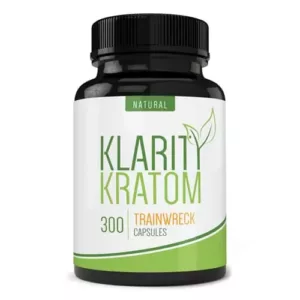

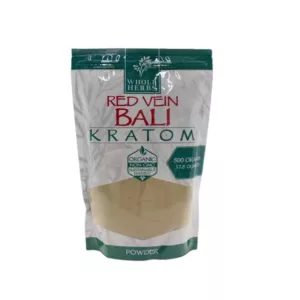
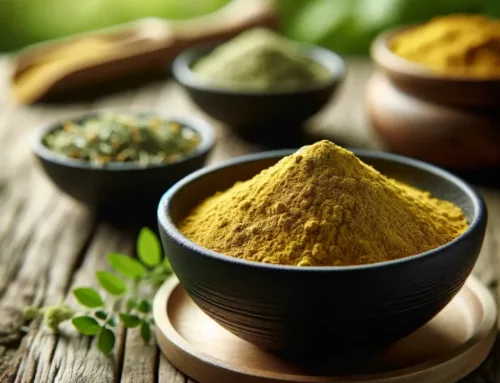
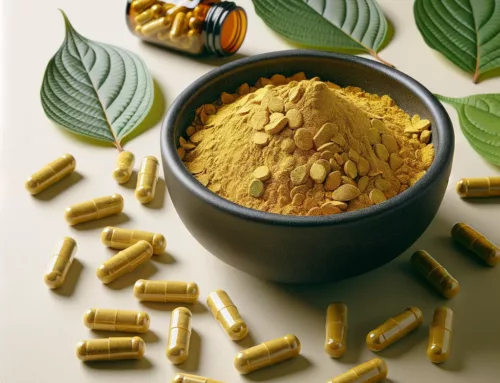

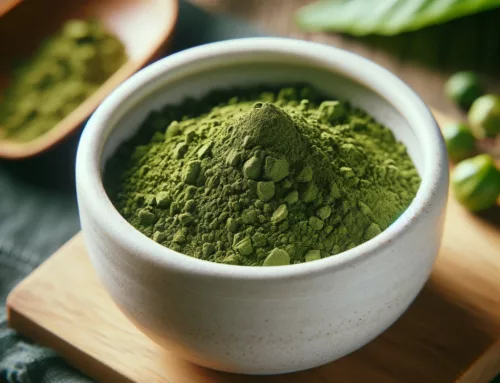
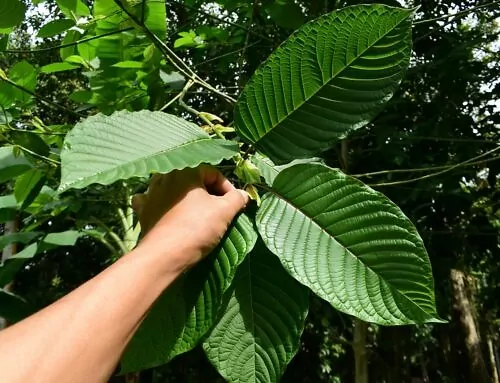
Thank you for writing this article & helping me understand what can be used when the withdrawals become unbearable, downright annoying to the point of either crying or screaming, not to mention the severe lack of sleep.
My journey is going to take me 10 weeks to complete…. I’m currently on the 3rd day of week 8. Right now taking 8mg Exalgo 2x/day from 32mg/2x a day…. so I came down from 64mg on ER Dilaudid to 16mg of it in 7wks.
My 1st month was focused on dropping my short term med- Nucynta, or Tapentadol, @75mg 4x/day or 300mg/day to 0mg in 4 wks.
That was a sheer walk in the park compared to the ER Dilaudid.
It seems it’s worst at days 2-5 for me…. so I’m getting a 24-36 hr respite every week…. which at the very end here, isn’t NEAR enough.
I tried an inpatient facility & ended up at a psych ward with most of them being nonfunctional individuals. That was the LEAST severe floor….
I tried to leave after 1-2hrs in there because every 1 of my freedoms & things were taken away from me. Not even prescribed ANY opiates…. only a muscle relaxer & an anti-inflammatory. Anytime I needed water to drink, which was the ONLY Beverage offering, I had to go to the nurse’s station window & ask for a Very small Styrofoam cup (maybe 4oz) of water….needless to say the 14hrs I was there, I drank close to 20 cups….
I was ignored by the staff most of the time & I was unable to call my husband to come get me until they turned on the patient phone at 9am, 8am, 8:30am, & 7:30am—– were all the different answers I got 4the time they had a dial tone. They turned it back off during group activities & meals as well as locking us out of our rooms to increase participation.
Needless to say, I felt like I was in prison all bc I VOLUNTARILY decided to medically detox from opiates & all pain meds.
It was an act of God 2get discharged when 1 of the 2 docs at the facility sauntered in at 10am. He saw me around 11:30 & I was supposed to be 1st bc of this HORRIFIC mistake that was made to admit me & then keep me against my will in a locked unit until the doc came in & I wasn’t allowed to contact anyone for 10 of those 14hrs.
As soon as my husband walked out the door to admit me, the torture began with a strip search from a female Hispanic nurse (LVN) & a tall purposefully intimidating black woman- a floor tech.
Then proceeded to take ALL of my things including my bra & left me with the rest of what I was wearing.
This wasn’t even a detox facility!!!!
I spoke to 1 of the 2 docs a total of 2mins & asked 5 questions to be admitted & then I was stuck until they saw fit for me to leave.
The doc that came into the facility did discharge me but did so AMA & SAID I needed to stay to treat my depression…. WHAT!?!?!? REALLY?!?!
SO, now I’m detoxing from home under the direction of a pain doc.
His motto is zero medicine bc all pain can be dealt with successfully without the use of medication….. again, I ask you….WHAT!?!?!?!
So, there runs the gamut of extremes….
As I fired my previous doc who was giving me those medications plus 2 more.
That a short short version. Just wanted to share my current fight with weaning addictive meds at home under doc supervision.
These meds destroy every area of life for chronic pain sufferers, yet they were freely given to me & increased when my tolerance grew.
I.knew NOTHING of the journey forged with them & how ridiculously hard it is to face a life without them.
Living disabled is quality of life robbing, stressful because of lack of income, depressing, anxiety ridden, & done alone in my experience. And it was/is NO WAY I want to live.
So I have a hard DNR in place & will not be using any methods to save my life, no matter the cause this time; as I’ve lived 12 lives & the 13th will be the last.
I’m tired & want this suffering ended.
Just my 2 cents/short account of 1 experience.
Sincerely….
Jennifer